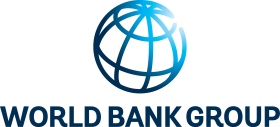Income inequality in China has risen
rapidly in the past decades across regions, between rural
and urban sectors, and within provinces. The dynamics of
divergence across these sub-national areas have taken the
form of a "race to the top" - meaning that all
segments of the population, including the poor with low
education in lagging inland rural areas, have experienced
gains in average income. The largest gains have been
registered by those with higher income and education in
leading coastal urban areas. Using the China Economic,
Population, Nutrition and Health Survey data of 1989 and
2004, we show that the most important factors explaining
overall inequality are differential returns to schooling and
sector of employment. A decomposition analysis based on
household income determination shows that the increase in
returns to education explains two-thirds of income changes
in urban areas and one-sixth in rural areas. The widening
income gaps are the consequence of higher growth in leading
urban and coastal areas and that the skilled population has
benefited more from the economic reforms carried out during
the last 25 years. The authors argue that rising income
inequality can be part of a normal process of development at
a certain stage, and that the dynamics of spatial income
divergence in the form of "a race to the top" can
be desirable to some extent as it unleashes competitive
pressure and creates incentives for investment in skills.
Continuing to improve market efficiency and investing in
people, in particular improving education service in lagging
areas to poor people, are important for sustainable growth
and equitable distribution in the long run.
Autores e editores
Luo, Xubei
Zhu, Nong
World Bank Group (WB)
The World Bank is a vital source of financial and technical assistance to developing countries around the world. We are not a bank in the ordinary sense but a unique partnership to reduce poverty and support development.
Provedor de dados
World Bank Group (WB)
The World Bank is a vital source of financial and technical assistance to developing countries around the world. We are not a bank in the ordinary sense but a unique partnership to reduce poverty and support development.


